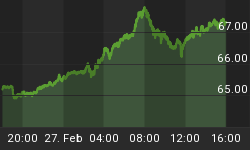The results of yesterday's federal parliamentary election have done nothing to lighten the mood in Germany. Across the country this morning - indeed, across the whole of Europe - the news media were downright gloomy about the result. A hung parliament is the worst possible outcome as far as the voters and the markets are concerned. The only happy ones are the headline writers.
Recall that Social Democrat Chancellor Schröder called for early elections to boost his pro-reform mandate. Initially, the opposition center-right Christian Democrats (CDU) led by as many as 20 points in the opinion polls, and CDU leader Angela Merkel looked set to become the next Chancellor. But come the day, the CDU won just 35.2% of the votes and 225 seats, while Schröder's SPD managed to capture 34.2% and 222 seats. The two main parties' likely coalition allies also did well - the liberal Free Democrats saw their share of the vote jump to 9.8%, giving them a very-respectable 61 seats. And the Greens, partners in Schröder's outgoing government, won 51 seats on 8.1% of the vote. However, the new Left Party, a mix of disgruntled left-wingers from the SPD and the old Communist Party from the east, managed to win 54 seats (on 8.7% of the vote). This means that neither a center-right CDU-FDP coalition (which would have 286 of the 613 seats), nor a re-tread of the previous SPD-Green grouping (273 seats), can command a majority in the new parliament.
Seats in New Parliament
The post-election maneuvering is starting already, with Schröder refusing to contemplate a so-called "Grand Coalition" with the CDU unless he remains as Chancellor; the FDP ruling out joining a coalition that includes the SPD; and Merkel insisting that, as the party with the largest number of seats (just) she has the right to make the first attempt to form a government.
The constitution stipulates that the new parliament must convene 30 days after the election - i.e., on October 18 - at which time the lower house will vote for a new Chancellor. If, after a few rounds of voting likely to be spread out over a couple of weeks, no-one can command a working majority in the house, President Koehler must dissolve the parliament and call a new election. It might be better to fast forward straight to that point.
Right now, nothing is certain except that the negotiations are likely to be messy, brutal, and protracted. German industrial leaders have hastened to go on record calling for the swift formation of a grand coalition as the only way to move forward with structural reforms. They should be careful what they wish for. Given the already-combative atmosphere the day after the vote, a Grand Coalition would be a bitter affair, full of posturing and little in the way of substantive achievement.
For although both the SPD and the CDU speak of the need for reform, their priorities are very different. Schröder made a start on labor market and healthcare reforms, but now wants to turn to the subsidies and corporate tax breaks that benefit the business sector. Merkel is focused on welfare spending cuts and radical income tax reforms as the next step, and her corporate backers want no part of their protectionist subsidies touched.
Meanwhile, any reform agenda still has to pass the Bundesrat, the upper house of parliament, that is effectively the voice of the various state governments and is currently dominated by the CDU. The Bundesrat's members won't contemplate any reforms of taxation or spending that could upset the complex web of cash distributions between the center and the states, but without tackling this issue it will be difficult to get the long-term federal deficit reduction that Germany clearly needs.
All of which explains why the Euro and share prices across Europe are lower this morning. The German DAX stock index dropped 2% in early morning trading before regaining some ground. The euro slipped to a seven-week low around $1.210, recovered some during later European trading, then slide back near $1.21 as the US markets opened. The expectation of drawn-out coalition negotiations will continue to weigh on the markets over the coming weeks, and firm position-taking in any direction will be avoided until the uncertainty lifts.

The key for the German economy in the near term is making Germans feel more cheerful. German exports have been doing very well over the past couple of years - in fact, Germany was the world's largest exporter last year. And the country's exports this year have not been hit as hard as one might think by higher oil prices, since capital goods exports to oil producers are rocketing along.

It is domestic demand that is still firmly in the doldrums, and keeping overall GDP growth so subdued. There have been some nascent signs that the consumer is on the verge of feeling more secure - e.g., consumer goods orders have been rising steadily in recent months. But with retail sales still in the doldrums, it is clear that more will be needed to get Germans to open their wallets again. And weeks of uncertainty on the political front, with all that implies about future policy priorities, is not going to make Germans feel any more sanguine about the future.















